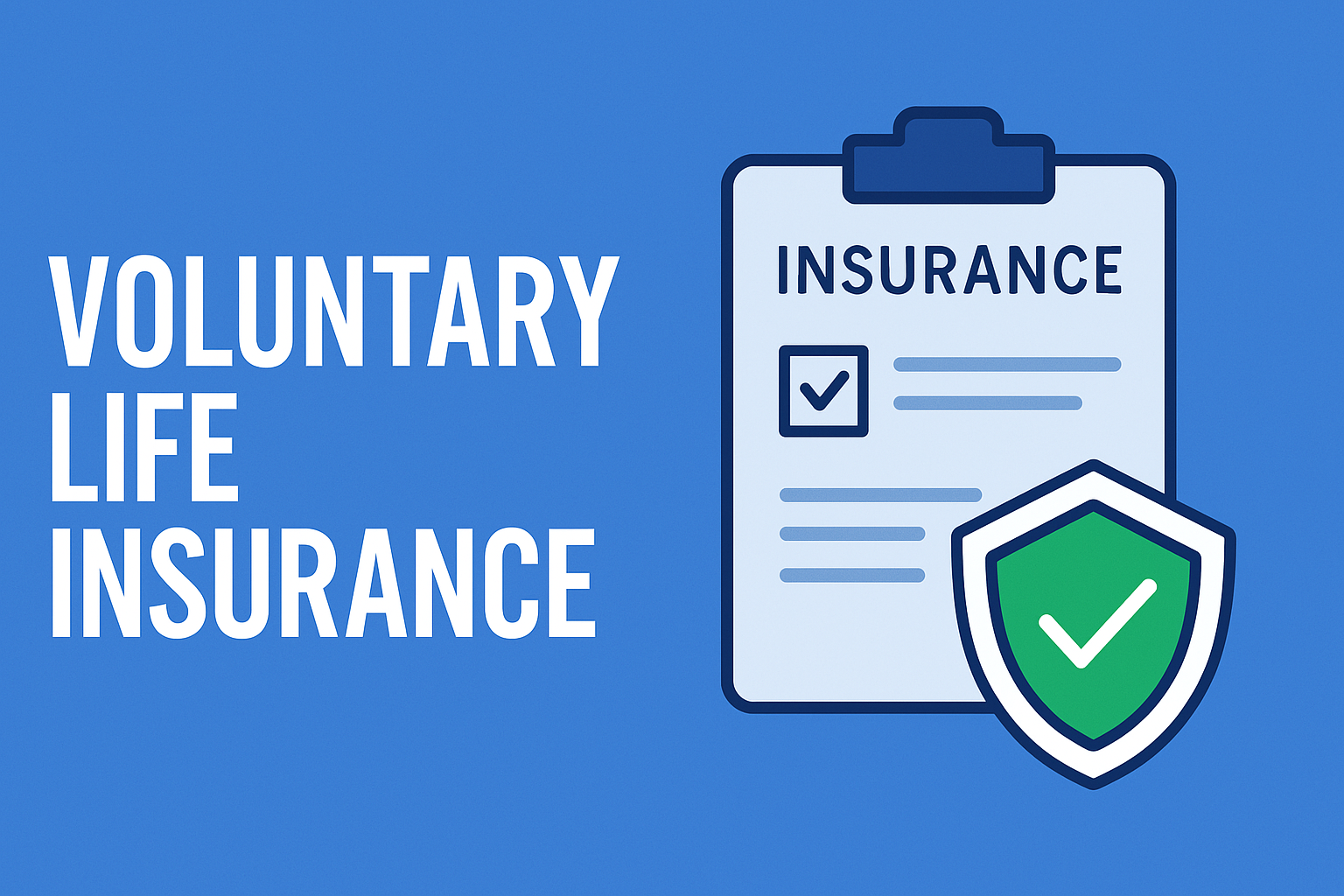What is Voluntary Life Insurance? A Comprehensive Overview

Voluntary life insurance is an optional employee benefit offered by many employers as a supplement to basic group life insurance. Unlike the basic life coverage that an employer might automatically provide, voluntary life insurance allows you to choose to purchase additional coverage—often at competitive rates—directly through your employer. This type of insurance is “voluntary” because enrollment is optional, and premiums are typically paid by you rather than the employer.
How Voluntary Life Insurance Works
Supplemental Coverage
Most companies provide a basic group life insurance policy as part of their employee benefits package, which might offer a death benefit equal to one or two times your annual salary. However, this coverage might not be enough to meet your specific financial needs or long-term goals. That’s where voluntary life insurance comes in. It allows you to purchase extra coverage to bridge the gap between the basic policy and your desired amount of protection.
Enrollment and Premiums
Enrollment in voluntary life insurance is usually open during a specific period, often when you first become eligible for employee benefits. You can typically choose from different coverage levels based on your needs. The premiums for voluntary life insurance are paid entirely by you through payroll deductions, which means the cost is usually lower than if you were to purchase an individual policy on the open market. Premiums are determined based on factors such as your age, health, and the amount of coverage you select.
According to the Insurance Information Institute, voluntary life insurance is designed to be affordable and convenient, allowing employees to enhance their coverage without undergoing extensive underwriting processes that are common with individual policies.
Group Advantage
Because voluntary life insurance is offered through a group plan, you may enjoy several benefits:
- Competitive Rates: Insurers often provide lower premiums due to the group underwriting process.
- Simplified Enrollment: Many voluntary life policies require minimal underwriting, making it easier for employees to get coverage—even if they have pre-existing health conditions.
- Convenience: Premium payments are automatically deducted from your paycheck, which can simplify budgeting and ensure that your coverage remains active.
Benefits of Voluntary Life Insurance
Financial Security for Your Loved Ones
The primary purpose of life insurance is to provide financial protection to your beneficiaries. Voluntary life insurance can help ensure that your loved ones have adequate financial resources to cover expenses such as mortgage payments, debt, education, and living expenses if you were to pass away.
Flexibility to Customize Coverage
Since enrollment is voluntary, you have the flexibility to choose the coverage amount that best fits your needs. Whether you need a modest boost to your basic coverage or a significant level of additional protection, voluntary life insurance can be tailored to your situation.
No Medical Exam Required (in Many Cases)
One of the advantages of voluntary life insurance is that many plans do not require a medical exam, especially during the initial enrollment period. This can be particularly beneficial for employees with health issues who might otherwise face higher premiums or denial in the individual market.
Easy and Affordable Access
For many employees, voluntary life insurance is an accessible way to obtain extra coverage without the hassle and expense of purchasing an individual policy. The convenience of automatic payroll deductions and competitive group rates makes it an attractive option for additional financial security.
Considerations When Evaluating Voluntary Life Insurance
Coverage Limits
While voluntary life insurance can be a valuable supplement, it’s important to note that coverage limits vary by employer and insurer. Assess your overall financial needs to determine if the additional coverage will be sufficient to meet your long-term goals.
Portability
In some cases, voluntary life insurance is tied to your employment. This means if you leave your job, you may lose the coverage. Some policies offer portability options, allowing you to convert the coverage to an individual policy, though this can come with higher premiums. It’s crucial to understand the terms of your plan and consider how your employment situation might impact your long-term coverage.
Underwriting and Premium Adjustments
Although many voluntary life policies do not require a medical exam, there may be conditions or waiting periods for coverage to become fully effective. Additionally, premiums are often based on age and health status, so enrolling early can be beneficial in locking in lower rates.
For further details on underwriting and premium structures, check out resources from the National Association of Insurance Commissioners (NAIC).
Who Should Consider Voluntary Life Insurance?
Voluntary life insurance is a great option for employees who:
- Have Dependents: If your family relies on your income, additional coverage can help secure their financial future.
- Need Extra Coverage: When basic group life insurance isn’t enough to cover your obligations, voluntary life can fill the gap.
- Prefer Convenience and Affordability: Automatic payroll deductions and competitive group rates make voluntary life insurance an attractive, hassle-free option.
It is especially beneficial for individuals who might have difficulty obtaining individual coverage due to health issues or who want to take advantage of group pricing.
Conclusion
Voluntary life insurance is an optional, supplemental benefit offered through your employer that allows you to purchase additional coverage at competitive rates. By enhancing your basic group life insurance policy, it provides extra financial security for your loved ones and offers a convenient, affordable way to customize your coverage. Whether you have dependents, significant financial obligations, or simply want extra peace of mind, voluntary life insurance can be an important part of your overall financial strategy.
For more detailed tools and resources on evaluating your life insurance needs, including policy calculators, courses, and audiobooks, visit BetterWealth’s And Asset Vault.
Ensure that you have the right level of coverage to protect your family and secure your financial future. Voluntary life insurance is an accessible and flexible option that can be tailored to meet your specific needs—providing peace of mind and a vital financial safety net.





